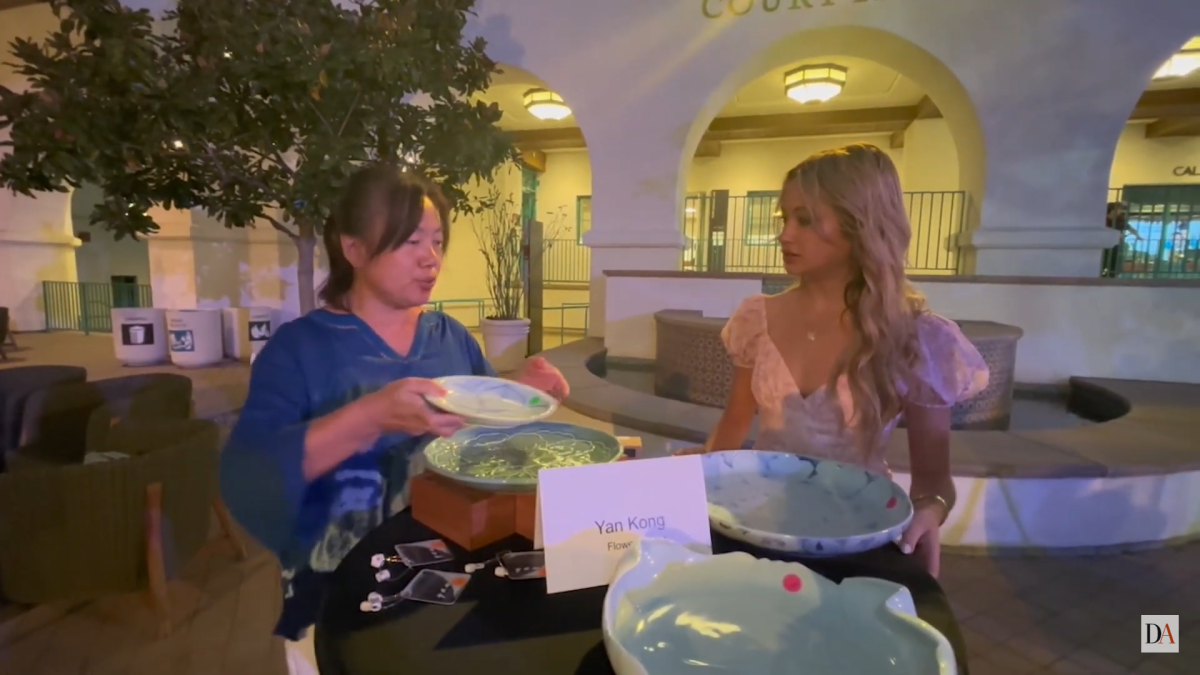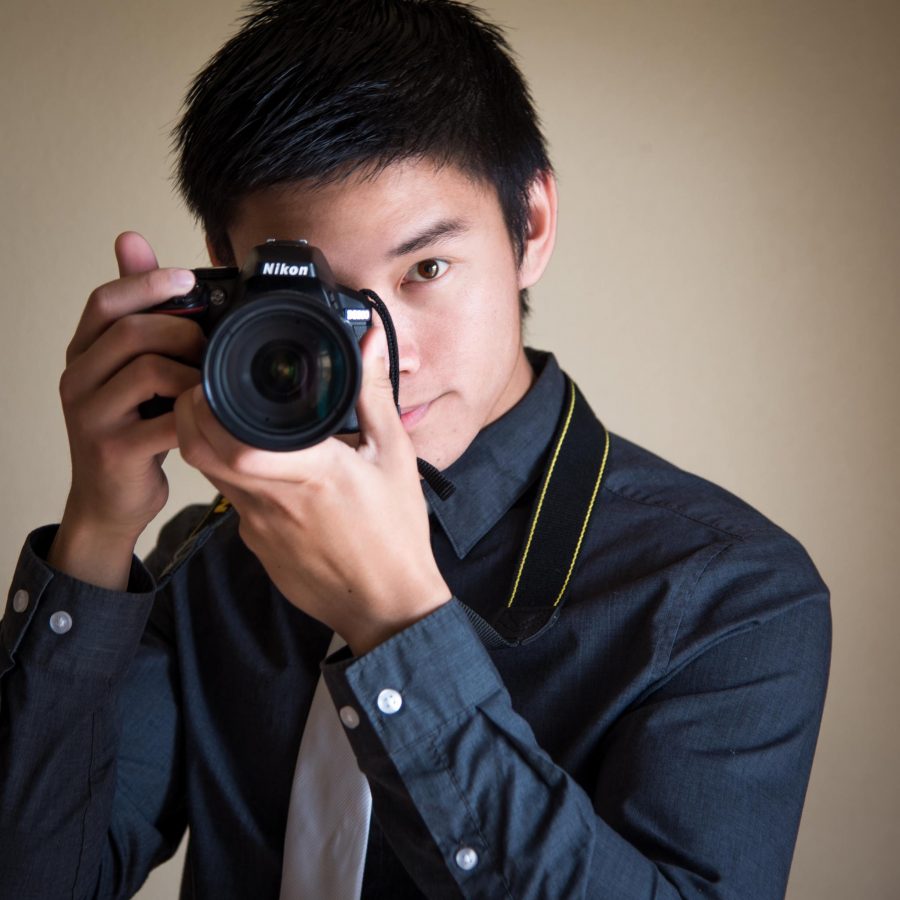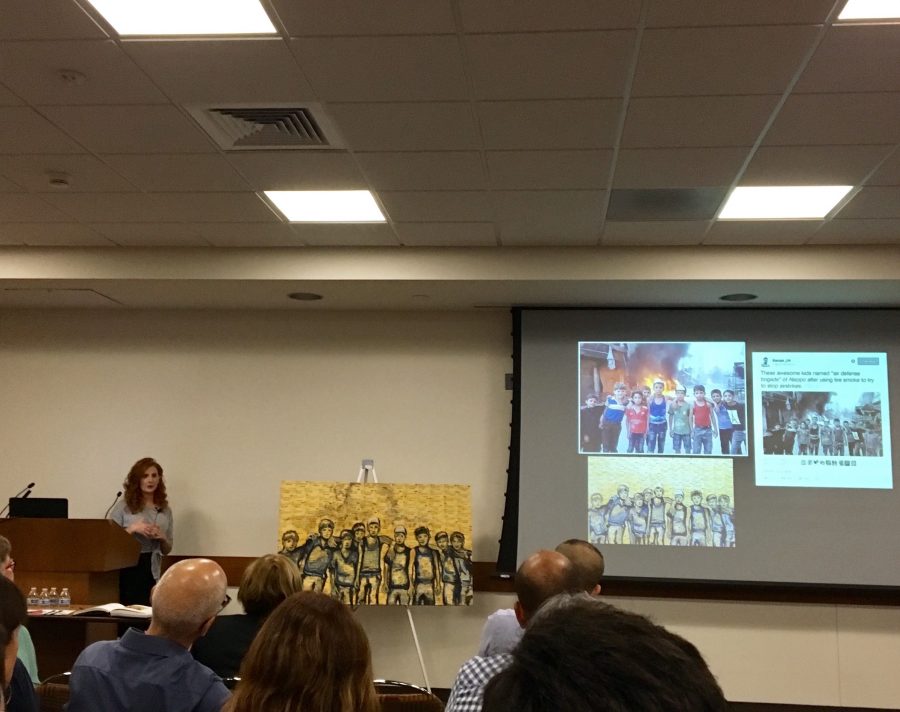 The Daily Aztec recently interviewed Taina Rodriguez, a senior public relations manager at the local Sony Online Entertainment headquarters and also a San Diego State graduate student. Rodriguez provides some insight into how to break into the gaming world using PR, a big major here at SDSU.
The Daily Aztec recently interviewed Taina Rodriguez, a senior public relations manager at the local Sony Online Entertainment headquarters and also a San Diego State graduate student. Rodriguez provides some insight into how to break into the gaming world using PR, a big major here at SDSU.
The Daily Aztec: Can you give me some brief information about yourself?
Taina Rodriguez: I’m a senior PR manager at Sony Online Entertainment … I majored in communications with an emphasis in advertising and a specialization in economics.
While I completed my undergrad at San Diego State I worked at Sony Computer Entertainment America, the PlayStation software development group in Mira Mesa, and then when I graduated I found a position at Sony Online Entertainment that was more specific to my field and I’ve been here ever since.
At SOE we are dedicated to creating expansive and fun online worlds for players of all ages.
DA: Can you give some specifics about what you do?
TR: My job is to work with our development team and internal marketing teams to promote our upcoming and existing video games to consumers. More specifically I work on communications and marketing plans, and utilize tactics and events to promote our upcoming games, development teams and corporate image out there in the public.
I work with journalists, broadcast media, online media, print media in order to disseminate stories, interviews and assets for our upcoming titles. My work results in game reviews in Game Informer magazine, executive interviews in the Los Angeles Times, and business features in the San Diego Business Journal, for example.
DA: Has working in PR for Sony been what you expected before you started there?
TR: I didn’t graduate thinking I would begin a career in public relations, but I definitely love my job. While my undergrad program did include a PR course, working as a PR professional is not necessarily what you learn from reading textbooks and participating in crisis communication simulations.
I think most of a PR’s job involves the processing of developing a particular narrative for a brand or personality and continually defining it through earned media placements, social media experimentation and brand ambassadorship.
School definitely gives you the foundations and principles to grow on, especially with a field like PR, but until you’re hands-on — well, that’s where the real learning begins. Internships and entry-level positions are where you begin to develop your skills and experience the realities of the business world.
My job is day-to-day working externally with the media and also internally with our game development teams to craft compelling communication plans for the long-term life cycle for our products in order to inform the media and public about the cool games we create and why they should play them.
Currently I’m working on our upcoming massively multiplayer first person shooter, “PlanetSide 2.” We also have recently released PlayStation Network titles “Payday: The Heist,” “Rochard” and “Sideway New York.”
DA: What have your experinces as SDSU been like?
TR: I actually found that SDSU is an excellent school as an undergrad. I was completely satisfied, I learned a great deal and had some great professors.
I think SDSU is a great school but also regardless of whatever school you go to I truly feel that it’s about you, it’s about the person that is attending classes. I have friends and acquaintances that have attended prestigious universities and they’re working in a coffee shop.
It’s not always about where you went to school it’s about what you did with that knowledge and how you applied it to your life and how you used it to get to that next level. We all know people that just sit in class and don’t pay attention, they’re at a loss because they’re not able to apply that knowledge later in the real world.
There’s a number of different things that go into making you a valuable asset to a company but nowadays a job doesn’t just fall in your lap, you’re going to have to merge what you’ve learned in the classroom and life in general and display how you can apply those skills to better the company of your potential employer. In this way, I think San Diego State is an excellent school for giving you a good balance of real life and great education.
DA: It’s interesting to hear your take on the difference between what you’re practicing and what the schools are preaching.
TR: The communications degree is definitely well rounded. And, crisis communication is a core competency that every PR professional will have to employ. But targeted communication, across multiple channels on behalf of your company or client, will definitely be at the core of your job if you work in the corporate landscape or at a PR agency.
In the last few years social media has definitely become important to PR. Being well versed in the newest social media tools and trends in terms of user-generated content and community management is now an expected part of the PR toolkit.
DA: What tips would you give to aspiring PR / journalism students who want to break into the industry?
TR: I’ll give the best advice that I received as an undergrad from Nick Lambesis from The Lambesis Advertising. He told me once to find a company that you would like to work at, that fits you, your mission and goals and whatever way you can get your foot in the door and don’t worry about the position.
Through hard work, perseverance you can move through the ranks and achieve the job that you ultimately seek. And, that’s basically what I did. I found a company where the culture and industry fit what I was looking to accomplish in my career, and I got myself in the door and worked my way up.
That being said, I think completing your undergraduate degree is only one important part of the puzzle, you must continue to educate yourself, and for me that means reading a lot and staying abreast of cutting edge trends and technology. Reading a lot of material is key; not just your favorite blogs, read articles in The New York Times and BusinessWeek. Verse yourself not only in your degree but become multifaceted and be a lifelong learner.
That’s something I truly believe in and that’s why I’m back in school now attending the Executive MBA program at San Diego State. I have work experience but I continually strive to increase my personal brand value and acquire new skills, strive to be a better manager, a better employee, a better corporate citizen and a leader in my industry. And, I don’t just want to learn the principles; I want to apply my working knowledge and achieve a better foundation and understanding of the overall business landscape. So far, the Executive MBA program has done a great job of fulfilling those needs for me.
DA: To people who are considering whether it would be better to jump into the field with a bachelor’s degree or possibly go after a master’s first, do you think it helped you rather than harmed you that you did have that time period between your B.A. and going back for your MBA?
TR: I am able to apply what I learn at a much higher level because I have a number of years of work experience between my undergraduate and going back to school for my graduate degree. I think it’s imperative to have some working knowledge not only to comprehend the curriculum but also to give back to your fellow classmates and professors. You’re not only learning from the textbooks you read and lectures you attend but also through the experiences of your fellow classmates and fellow professionals.
Being able to learn a paradigm or principle in class and being able to immediately see how it can be applied to your work environment is invaluable. If you go immediately from undergrad to grad you miss acquiring the real-life learning you get on the job. I also think although you have an extra credential that doesn’t necessarily mean you’re going to get a job. When looking for new employees, managers may hire someone that has a ton of experience and is a go-getter and a hard worker rather than someone who’s just done school their entire career.
While people may prefer one or the other, I’m not knocking academics that choose this route, I’ve just found in my career and those of my peers, it has definitely helped to have firsthand knowledge of the inner workings of a business.
DA: I noticed you mentioned a few of the games you are working on right now. I know “PlanetSide 2” is one of the big ones, and you mentioned “Payday,” I had forgotten that just came out. I believe that is on PS3 and PC as well?
TR: Yes, “Payday” is on PC and PS3. It’s a PlayStation Network and PC downloadable title. It’s a first-person co-op shooter.
A little bit about Sony Online Entertainment (SOE), our corporate headquarters is here in San Diego but we also have a development studio in Austin, Texas. It was great to be able to transition from my university to a local corporation.
We create online virtual world games for all types of gamers on the PlayStation 3 and PC platforms. We take pride in the fact that all of our employees are gamers, we’re passionate about making a wide variety of virtual worlds that can be played by people of all ages.
At our headquarters here we have everything from our our quality assurance, game testers, customer service, marketing, sales, all of our administrative groups like finance and we also have a majority of our development staff here. Development that’s being done for “PlanetSide 2” is done locally, that means we have a team of artists, coders, programmers, producers and game designers working here on the game.
That’s one thing I think is really cool about the video game industry, people almost think that being a video game tester is the greatest job in the industries, but really we have so many different aspects of the job market reflected within our company.
We have in-house counsel, we have people that were engineers in other industry that now work for us, we have writers that develop storylines and quests for games, and all types of artists, from concept artists to 3-D modelers and animators, the list goes on and on. Then we have marketers, sales people, audio designers. We have a ton of different career opportunities in the game industry that I think people don’t even realize.
DA: You also have DC Universe Online. I believe today is the announcement about DC Universe going free-to-play?
TR: DCUO is now free-to-play for both PC and PS3 versions. We want to create low barriers to entry to our virtual worlds. We want to give our players games that are free-to-play their way. We have “Free Realms” and “Star Wars: Clone Wars Adventures” for kids and families, “EverQuest” and “EverQuest II” which are our heritage, fantasy titles and then we have “DC Universe Online,” which is obviously based on the “DC Universe” comics license, the first game for both the PC and PS3.
It was a really great experience for our company and us taking it free-to-play is just the next level of access for our players because at the end of the day we are a video game company but our players are our extended family, they’re a part of the process and they’re the reason we make these games.
DA: I’ll definitely check that out because it’s free, I like not having to pay for things and I believe most college students do too.
TR: The free-to-play game genre is definitely cool for college students, you don’t have a lot of expendable income, so like I said we are lowering the entry to our games so more people can be a part of them.






